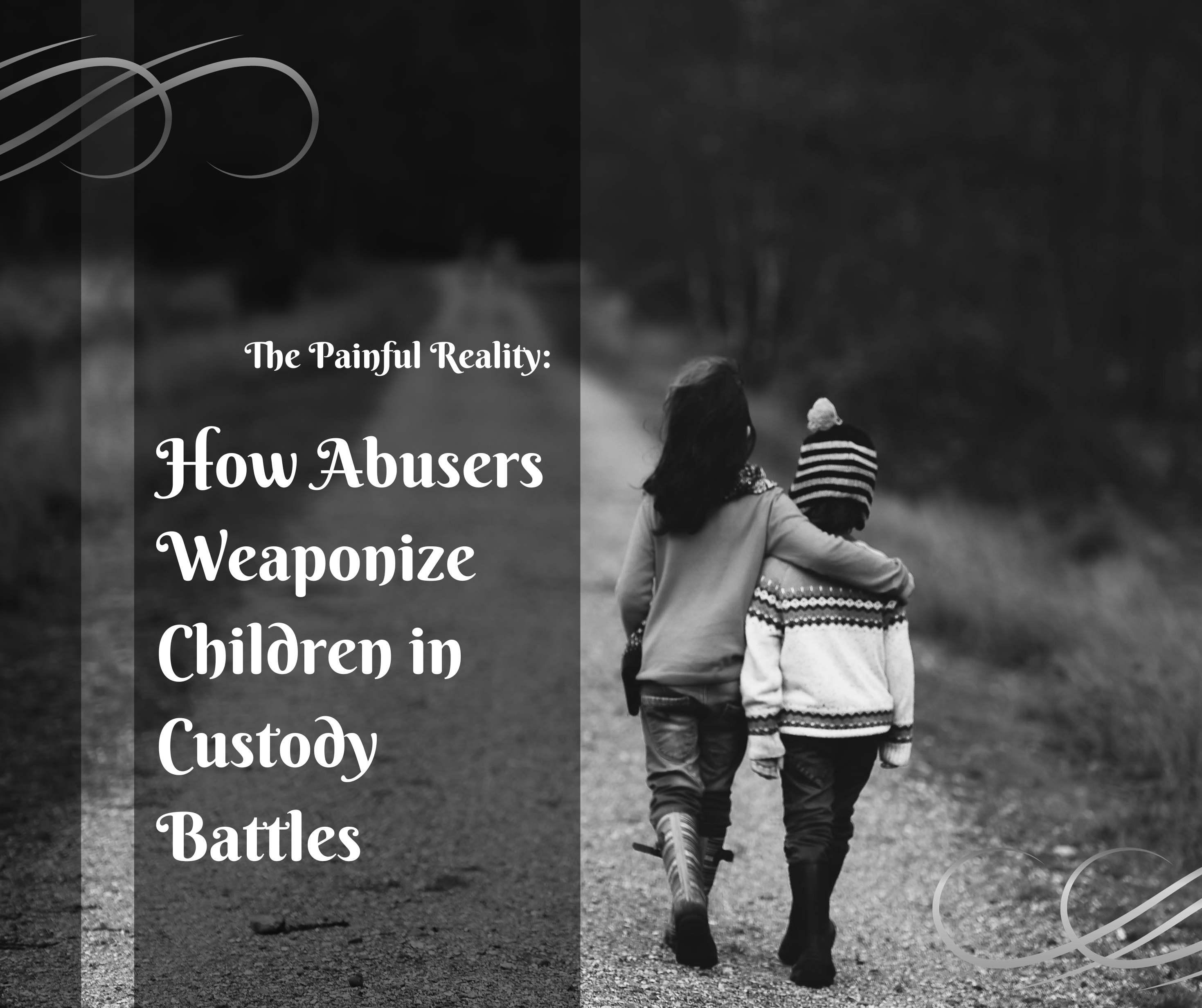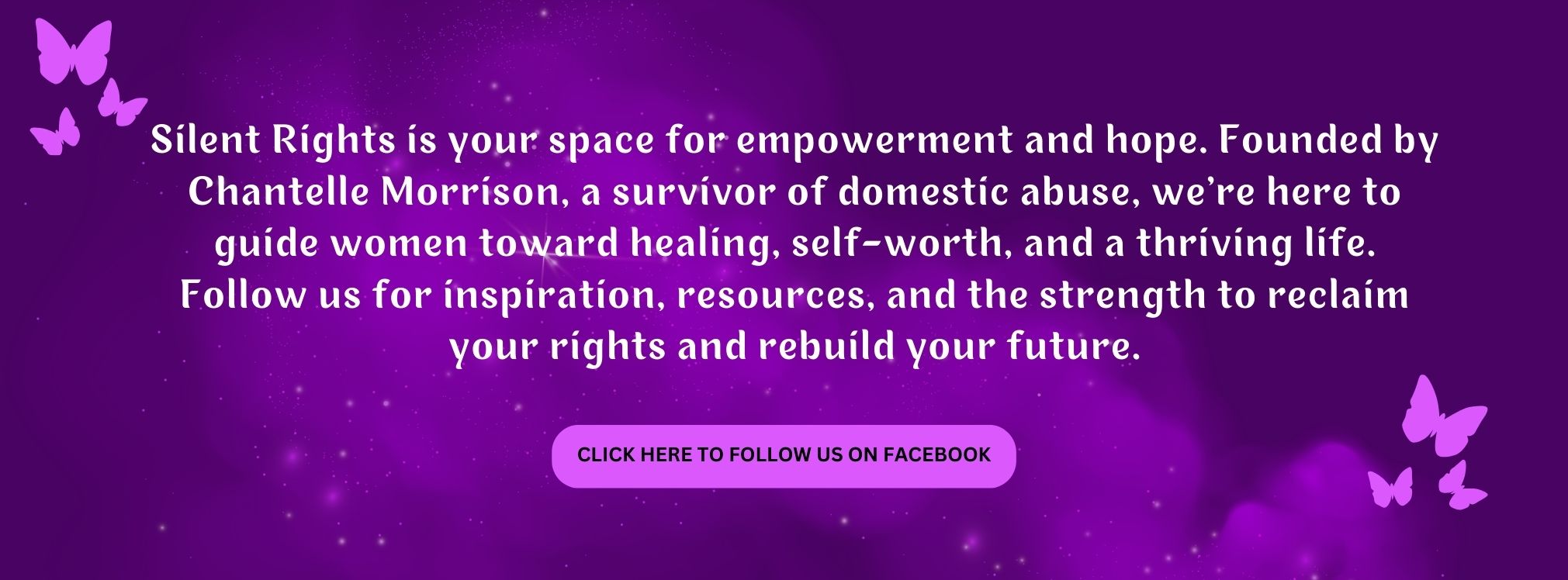The Painful Reality:
How Abusers Weaponize Children in Custody Battles
Please consider making a donation to Silent Rights to enable us to keep helping victims of abuse and violence. You can make a donation through paypal here.
Custody battles are emotionally draining experiences for any parent, but they can become even more harrowing when one party involved is an abusive partner. Abusers often resort to manipulative tactics, including using children as pawns, in an attempt to hurt their ex-spouse and gain custody.
In this blog post, we will shed light on the heartbreaking reality of how abusers exploit their own children to achieve their malicious goals.
Manipulative Tactics:
Abusers are skilled at manipulation, and when it comes to custody battles, they use their arsenal of tactics to their advantage. Some common ways abusers try to use children against their former partners include:
a. False Allegations: Abusers may make baseless accusations of neglect or abuse against the other parent, hoping to cast doubt on their fitness as a caregiver.
b. Parental Alienation: Parental alienation is a distressing tactic where an abusive parent attempts to turn the children against the other parent, poisoning their relationship and causing emotional harm.
c. Violating Court Orders: Some abusers may intentionally violate court orders related to visitation and custody to create chaos and stress for their ex-partner.
The Impact on Children:
Children caught in the crossfire of abusive custody battles suffer immense emotional and psychological harm. They often face confusion, fear, and loyalty conflicts, as they are torn between their parents. Witnessing abusive behavior or being subjected to manipulation can have long-lasting consequences on a child's mental and emotional well-being.
Legal Protections:
Recognizing the gravity of this issue, family courts are increasingly aware of the tactics abusers employ. Legal measures are in place to protect both parents and children. Courts prioritize the best interests of the child and may appoint custody evaluators or guardians ad litem to assess the situation objectively.
Seeking Support:
If you find yourself in a custody battle with an abusive ex-partner, it's crucial to seek support and legal advice. An experienced family law attorney can guide you through the process and help you build a strong case to protect your children's well-being.
Co-Parenting Safely:
In cases where shared custody is granted, it is essential to establish clear boundaries and communication guidelines with your ex-partner. Co-parenting classes or therapy can help create a healthier environment for your children.
Abusive partners who use children as weapons in custody battles inflict immeasurable pain on their victims and their own offspring. It is imperative for society to stand against such tactics and support those facing these difficult situations. Seek legal help, prioritize the well-being of your children, and work toward creating a safe and nurturing environment for them during and after the custody battle. No child should be a pawn in the destructive game of an abusive parent.

Please consider making a donation to Silent Rights to enable us to keep helping victims of abuse and violence. You can make a donation through paypal here.
Read more blog posts:
- Why an Abuser Will Do Whatever It Takes to Sabotage You
- The Myth of the Overworked Narcissist
- Why Narcissists Always Bring Up the Past
- You Are Not Crazy, Your Self-Worth is Inherent
- What Happens When You Treat a Narcissist the Way They Treat You?
- Discarding the Narcissist vs. Being Discarded by the Narcissist
- What Victims of Narcissistic Abuse Need to Know
- Why the Silent Treatment is the Best Way to Starve a Narcissist
- Love Bombing: Recognizing the Signs and Protecting Your Heart
- Preventing Teen Dating Violence: Education and Awareness
- Recognizing and Avoiding One-Sided Relationships
- Intersectionality and Abuse: Addressing the Unique Challenges Faced by Different Communities
- Nurturing Emotional Intelligence: Managing Aggression in Children
- The Role of Therapy and Counseling in Recovery from Abuse and Violence
- Protecting Against Digital Abuse
- When Your Adult Child Becomes an Abuser
- Oppose all forms of child abuse:The rights and interests of children are inviolable
- Identifying Narcissistic Behavior
- The Manipulative Web of Abusers: How They Use Everything and Everyone to Break You Down
- The Painful Reality: How Abusers Weaponize Children in Custody Battles
- Supporting a Loved One in an Abusive Relationship: A Guide to Providing Help
- The Importance of Planning for Your Future After Abuse
- How Talking About Your Abuse Can Help You Heal
- Harnessing the Healing Power of Affirmations with Action After Abuse
- South African Heritage Day: Celebrating Diversity, Unity, and Identity
- Social Media Safety – Common Social Media Scams
- Celebrating Women’s Day in South Africa: A Tribute to Resilience and Progress
- Recognizing the Signs: Identifying Domestic Abuse Patterns
- Navigating Parenthood Together: Understanding Parallel Parenting and Coparenting
- Do You Know Your Marriage Regime?
- Rebuilding Self-Esteem and Confidence: Tools and Techniques for Women after Abuse
- The Devastating Effects of Domestic Abuse on Victims and Their Children
- Betrayal and Healing: The Impact of Infidelity on Wives, Families, and Relationships
- Cybercrime and Domestic Violence
- Understanding Domestic Abuse
- Holding Your Abuser Accountable: The Importance of Opening a Case and Applying for a Protection Order
- Breaking the Silence: Confronting Gender-Based Violence Head-On
- The Power of Healing Quotes: Words that Mend the Soul
- Harnessing the Power of Affirmations for Healing from Abuse
- Navigating the Path to Love: Starting Dating After Experiencing Abuse
- Explaining to Your Child Why You Aren’t with an Abusive Parent: A Guide to Nurturing Understanding and Healing
- Processing Anger After Experiencing an Abusive Relationship
- Navigating Coparenting with an Abuser
- How to Deal with Narcissistic Family Members
- Escaping the Darkness: Planning Your Exit Strategy in an Abusive Relationship
- The Road to Healing: Processing Trauma and Building Resilience after Abuse
- From Victim to Survivor: Embracing a New Identity
- Parenting through Healing
- Recognizing Red Flags: Safeguarding Yourself from Toxic Relationships
- Love After Abuse: Healthy Relationships and Red Flags
- Thriving Beyond Abuse: Creating a Life of Joy and Fulfillment
- The Crucial Role of Self-Reflection in Escaping an Abusive Relationship
- The Healing Power of Journaling: Transforming Pain into Empowerment
- The Power of Financial Independence: Empowering Women to Escape Abusive Relationships
- Help create a precedent for Cyber Crime
- When a victim shares trauma
- Signs Someone Is Manipulating You
- WOMEN’S RIGHTS ARE HUMAN RIGHTS!
- Survivor Story: Ena Berger
- Adverse Childhood Experiences
- Co-parenting with a Narcissist
- Regain Your Self-Respect
- Common causes of domestic violence in relationship
- Self-care Tips To Heal From Trauma And Abuse
- How to Set Boundaries
- Gaslighting
- Healing after an abusive relationship
- Signs Of Sexual Abuse
- Abuse by proxy
- Rape culture
- Stalking!
- What is Harassment?
- Different types of Narcissists
- Courts of South Africa
- Signs of narcissistic behavior
- How to Recognize the Signs of Mental and Emotional Abuse
- Why Do People Abuse?
- Releasing Emotional Pain
- Be careful what you post on social media
- Why do abused women stay?
- Why women don’t feel safe
- Trying to hide the abuse
- Know your Human Rights
- Evidence
- Trauma Bonding
- What is Domestic Abuse?
- Harassment Order
- Protection Orders





